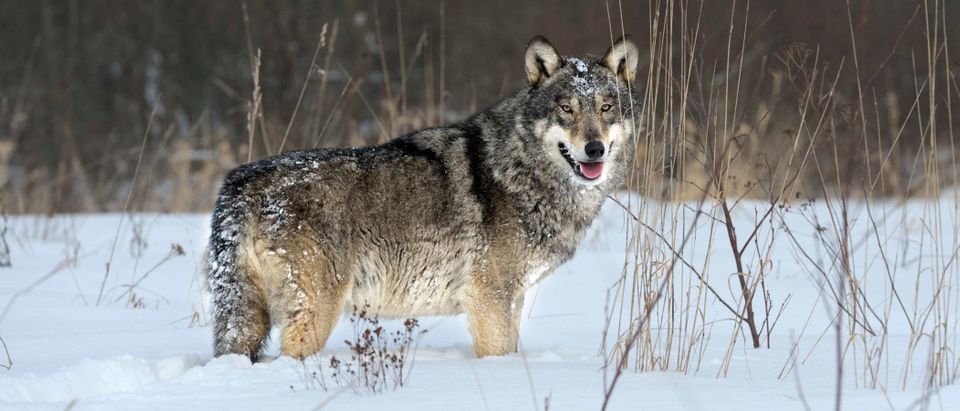You’ve likely seen headlines in February about a “study” that claims wolves around the Chernobyl Evacuation Zone (CEZ) have developed a resistance to cancer. But this is not true, and you shouldn’t have been told it is.
Most outlets covered a press release from the Society for Integrative and Comparative Biology, published on Newswise, which detailed the research of Dr. Cara Love, who studies wolves living in the region around Chernobyl’s collapsed nuclear reactor site (the CEZ) in Ukraine. The site and surrounding area were almost wiped off the face of the Earth in 1986 when the reactor went into a meltdown, poisoning hundreds of thousands of people and animals, and polluting the ground within a 1000-square mile parcel.
Love and her colleagues started studying radio-collared “mutant” wolves back in 2014 to see how their blood responded to high levels of cancer-causing radiation within the region. She found these wolves are exposed to roughly six times the legal safety limit for the average human.
“Most human research has found mutations increasing cancer risk (like BRCA does with breast cancer), but Love’s work hopes to identify protective mutations that increase the odds of surviving cancer,” the press release reads. The sad part is that almost all of the headlines I’ve read about this “study” — it’s not a study, it’s a press release — claim there is a link between the radiation levels and a type of cancer resistance within the wolves. But this is fundamentally untrue.
Normal People Having Ideas Is The Biggest Threat To Global Security, Concludes Cartoonish Bond Villains At Davos | @DailyCaller https://t.co/2lULT1UB0r
— KAY SMYTHE (@KaySmythe) January 11, 2024
“Unlike wolves living exclusively outside the CEZ, Love found that Chernobyl wolves have altered immune systems, similar to cancer patients undergoing radiation treatment. And most promising, she has identified specific regions of the wolf genome that seem resilient to increased cancer risk,” is the only sentence in the release that notes the potential relationship between this mutation and a lower cancer risk. But it hasn’t been identified, so this press release proves nothing.
Why anyone would be so ignorant and bold to say, definitely, that the wolves have “developed” a type of resistance to cancer is beyond me. It’s reckless, heartless and an all-out lie. (RELATED: ‘Twisters’ Trailer Proves Y’all Need To Be Paying Way More Attention To The Weather)
But my gut says this total manipulation of the truth wasn’t purposeful. I genuinely believe most of the people who wrote up this press release have (a) no formal academic training, and/or (b) can’t read.


